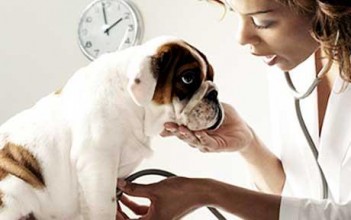
Among the many questions raised by the practice of cloning is the question of who or what will be cloned. To whom will the gatekeepers of life-after-life grant the privilege of immortality? Geneti-Pet, a company in Port Townsend, Washington, is not a cloning service. For $75 plus a $100-a-year storage fee, it will, however, store a vial of your pet’s blood in liquid nitrogen so that when replication becomes widely available—the assumption here is that this will happen during the course of a pet owner’s lifetime—you will have the means to wrest from your adorable little Puffles an eerie Puffles II.
The process is fairly simple. You send the company $175, whereupon it mails you a vial. You take the vial and your pet to your veterinarian to extract one milliliter or so of blood. You FedEx the sample back to Geneti-Pet, which slowly immerses it in the “cryogenic storage unit.” Then you wait. Every three months thereafter, Geneti-Pet sends you a newsletter about advances in the field of cloning. Although the company is unsure the replicated pet will retain memory of its former life, it contends that the new pet will be an infant.
You might be thinking: Why would I want to do this? “If you choose not to act now and your pet passes away or disappears, it will be impossible to obtain its DNA,” Geneti-Pet’s brochure warns. “Without the DNA, it will never be possible to replicate your pet. Once the animal is gone, it will be too late to change your mind.” Since I don’t have a pet, reading this did not cause me to break out in a cold sweat. Rather, I was struck by the possibility that Geneti-Pet might offer a convenient, if highly unconventional, way for my companion, Jess, and me to have a child. Whose blood would we send, though? Given that the idea was mine, politeness would demand that the blood sample come from Jess. But this might work to my advantage, I thought. “Imagine the good deeds and thoughtfulness that would pour forth from Jess once I had the power to kill and then replicate him.”
I called Geneti-Pet. “Uh, this is a strange question,” I said, “but couldn’t you do this just as easily with a human?” With a slightly alarmed tone, the Geneti-Pet representative asked, “Human blood?” I responded in the affirmative. She explained that it would not be possible; the service was “strictly for animals.”
Chastened, I dropped the idea. Several days later, though, I found myself talking about Geneti-Pet with a friend who lives alone with two cats. I encouraged him to call Geneti-Pet to find out more about it; he did. Once on the phone he explained that he wasn’t sure which of his two playmates he should preserve. He thought he couldn’t afford to do both. Moreover, Bob, the healthier of the cats, is often surly and aggressive, while Egg, the more affectionate, is sluggish and sometimes sickly. “So would it be possible to do a…cocktail,” my friend asked, “with a little of each?”
“Well, no,” the Geneti-Pet representative told him gently. “I mean, we’ll give you a discount if you want to do two animals, yes. That’s not a problem, but…” The woman explained that Bob’s and Egg’s DNA might be “incompatible.” My friend thanked her for her time. He later decided not to use the service at all.
The more I thought about it, the more surprised I was that Geneti-Pet would accept neither human nor mixed samples. After all, Geneti-Pet’s very existence is predicated on a scientific advance that may never happen; how could the company be so selective? It began to bother me that Geneti-Pet clients were paying $100 a year for a newsletter and storage space the size of a cigar. Heretofore, I had suspended my disbelief concerning Geneti-Pet’s mandate. But now I wondered: Would they do the same for me? Eager to find out, I sent Geneti-Pet an application form and this letter:
“We are not sure what kind of animal we have. While camping out at the Grand Canyon this summer, a thick-set, long-haired creature followed us home one night. Schatzi (as we call her) has the mannerisms of a dog, except that she often walks upright on her two hind legs, with a slightly pained expression. Many friends think she is a bear, only confused. I have refrained from taking her to a vet or zoologist because I don’t want to be told to take her back to the Canyon. Most beguiling to us, though, are the softball-sized eggs she leaves lying around the house; they are bitter to the taste, and require scissors to open. These lead me to believe that Schatzi is not a dog.”
Two weeks later, I called Geneti-Pet to say I had not heard back from them. A friendly and patient Geneti-Pet representative told me that Schatzi’s application could not be processed— “We need to have confirmation of its breed and its sex.” He made no mention of Schatzi’s egg-laying tendencies. I thanked him for his help. I also took the opportunity to ask what will happen in those cases in which pet owners pass away before the advent of cloning; he disabused me of the notion that Geneti-Pet itself will bring back and care for the pets of dead owners. “Oh, okay,” I said, “because if you guys were going to bring back the pets yourselves, I just wanted you to know that this is a very demanding pet.”
“We’re not planning on doing that,” he explained.
I have seen the future, and it is highly selective.
For the Best that Pet Lifestyle and animal welfare has to offer follow Wendy and Lucky Diamond on Facebook, Twitter, and right here at AnimalFair.com!
